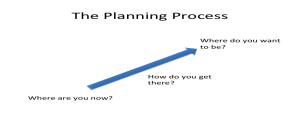If you are fortunate enough to be paid a 13th cheque or receive a year end bonus then here are some ideas on how to spend it wisely this festive season:
Save First then spend the rest
Save a portion. For as little as R1000 you can invest in the Top 40 shares listed on the JSE. Re-invest the dividends over time and take full advantage of compound interest over the next 10 years.
Debt is a good starting point
Have a look at your expenses and short list your debts. Make a pact with yourself that no matter what you will not go deeper into debt this holiday season.
Over draft, credit card outstanding shortfalls in tax, personal loan, bond
Any expenses which are high interest bearing debt need to be targeted first.
Pay a portion of your bonus towards debt
Gifts
Try and contain yourself this season by buying smaller and more interesting gifts. On-line buying is cheaper and less impulsive as you can carefully consider each purchase in the comfort of your home. You save on petrol, parking and that meal you normally have at the mall during your shopping. Think about a mall voucher…. this can be used to snap up the bargains after the Xmas rush when shops go on sale across the mall.
Credit Card
Use you credit card wisely this season. Budget an amount you will be spending on gifts this season and put this amount into your credit card. You will save on transaction fees and be able to control spending by keeping an eye on the balance. Remember the rule you set that you will not go further into debt. Watch your balance and make sure it does not increase.
Look for discounts on offer if you pay up front
School fees
Golf fees
Store accounts
Watch out for the early sales
Often stores go on sale just after the festive season.
If you hold back a bit with some money then you will have opportunities to pick up some bargains.
Take your holiday when everyone gets back
Out of season rates are a lot cheaper. So perhaps staying at home whilst the madding crowds are queuing for ice creams on the the packed beaches is a more sane option. Then booking a quiet week or two when the schools start will give you so much more of a decent break. There are so many local places where you can holiday. Space bank you unused time share and prepare to take up some of the late offers. Some weeks are ridiculously cheap if you are prepared to take off at short notice.
Buy your basics in bulk with friends and family and save
Plan some household items amongst yourselves and buy them through a wholesaler.
The unit price will be much cheaper than buying at the local stores.
It boils down to ATTITUDE. Holidays are much more pleasurable if you are in control.

